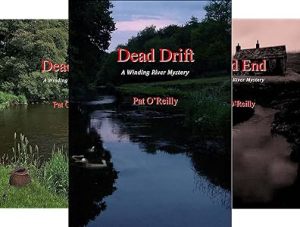Provençal Fritillary - Melitaea deione
Phylum: Arthropoda - Class: Insecta - Order: Lepidoptera - Family: Nymphalidae
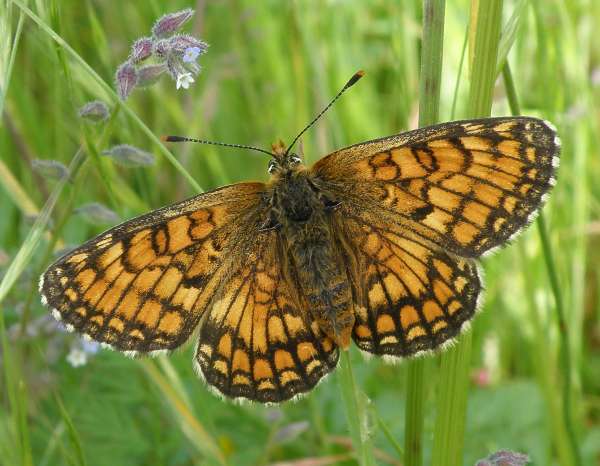
The Provençal Fritillary is one of several very similar Melitaea species (including the genus Mellicta in which some authorities place this butterfly) of central and southern Europe. It is a shy butterfly and can be difficult to approach, so that photographs may have to be taken with a relatively long lens; however, being a butterfly the Provençal Fritillary is unpredictable and sometimes sits still allowing a camera to come almost into contact with its wings!
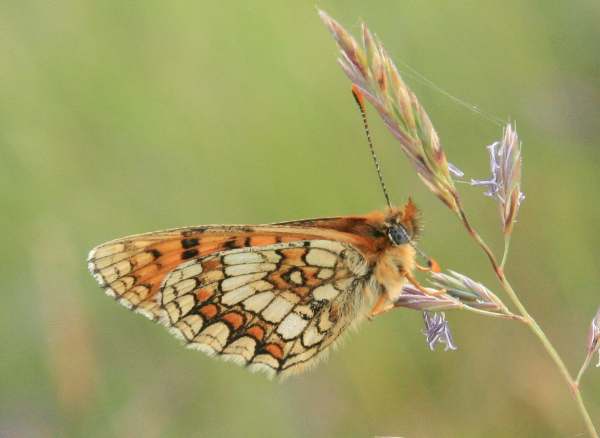
Distribution
Portugal, Spain, northern Africa and the south of France are where these lovely fritillary butterflies are mainly found, although their distribution stretches eastwards at least as far as parts of Italy. The specimens shown above were photographed in the Lot Valley in the Dordogne region of France.
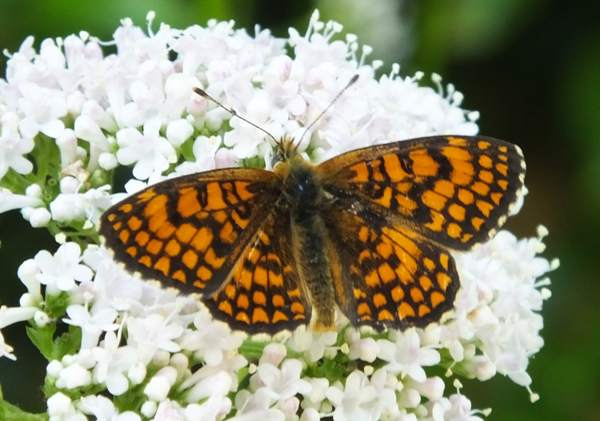
Lifecycle
The primary larval foodplants of the Provençal Fritillary are toadflaxes (Linaria spp.), notably the yellow-flowered Common Toadflax Linaria vulgaris. They also use Antirrhinum (Snapdragon) species occasionally. The young laterally-striped caterpillars feed within a fine silken web low down on the plants.
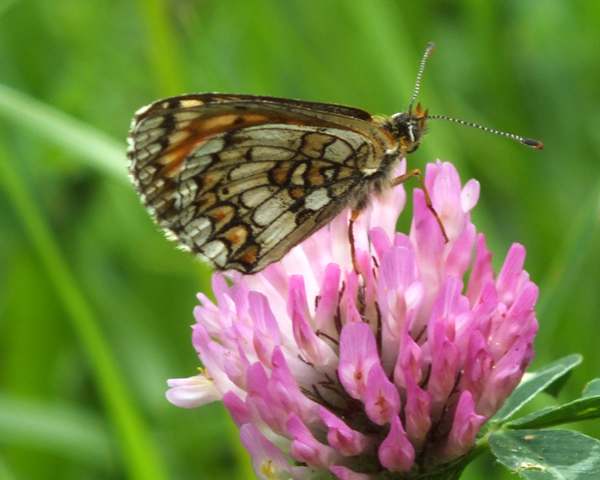
The specimen shown below may have been seen at Rocha de Pena in the Algarve Region of Portugal in April or May; however, at present we are unable to confirm the location and date and so this record must be treated with caution.
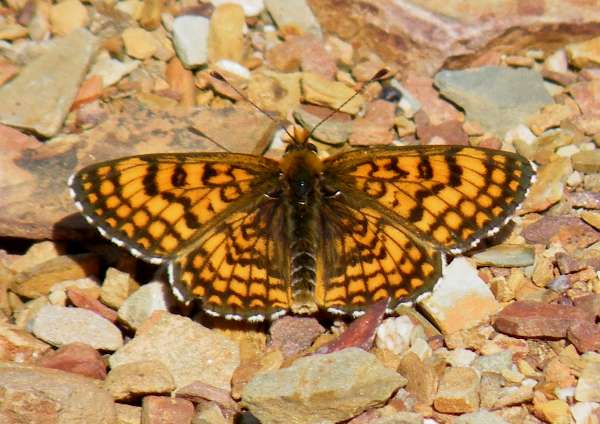
If you have seen the Provençal Fritillary in the Algarve we would like to hear from you, and if you have a picture that we can show on this page we would be particularly grateful.
Studying butterflies and moths...
Excited at the prospect of flyfishing? So are we, and we're pretty sure you would find the Winding River Mystery trilogy of action-packed thrillers gripping reading too. Dead Drift, Dead Cert, and Dead End are Pat O'Reilly's latest river-and-flyfishing based novels, and now they are available in ebook format. Full details on our website here...
Buy each book for just £4.96 on Amazon...
Please Help Us: If you have found this information interesting and useful, please consider helping to keep First Nature online by making a small donation towards the web hosting and internet costs.
Any donations over and above the essential running costs will help support the conservation work of Plantlife, the Rivers Trust and charitable botanic gardens - as do author royalties and publisher proceeds from books by Pat and Sue.
